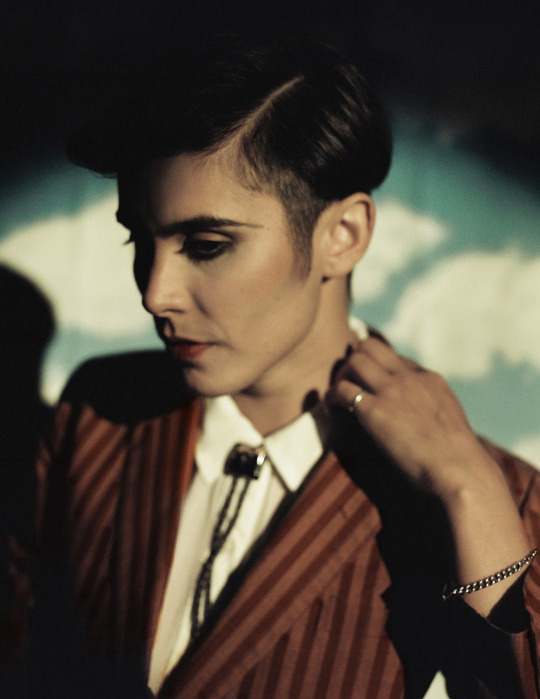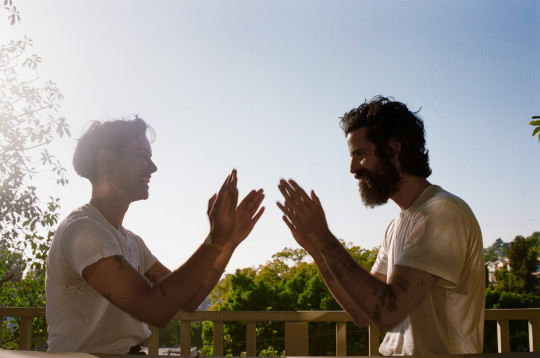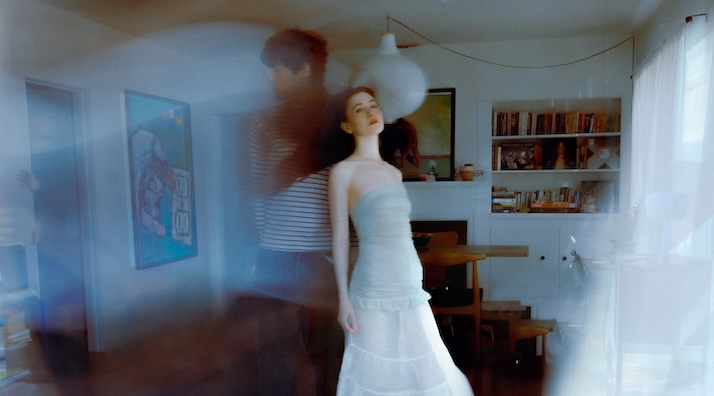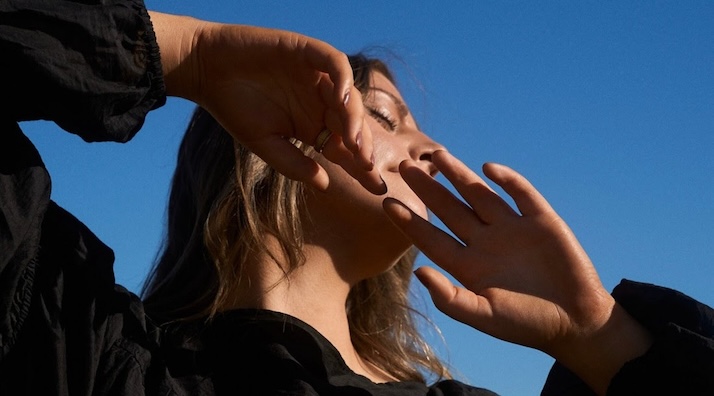The Future Is Bright: KERA's Queer Journey and an Optimistic New Song [Q&A]

Photo Credit : Alexa Nikol
Kera Armendariz is aggressively human. Watch them onstage, and you may feel the freedom that reaches beyond their extremities or giggle at the many expressions that flash across their face. Speaking one-on-one, you'll notice their boundless charm.
It's gloomy and wet in Los Angeles on the night I'm to meet the artist known as KERA. We tuck into the corner of a yoga studio-slash-juicery off Wilshire and, peering out the window, we can see that there is no traffic on the street. Yet, there is so much noise around us that Armendariz asks, more than once, if we should move. A DJ is spinning "thank u, next" in the cramped lobby to set the mood for a benefit show supporting the Los Angeles Women's Network, an organization that helps women and girls in the local LGBT community. KERA is headlining.
Armendariz has been enjoying a small spotlight since releasing a song called "Bright Future Ahead," featuring guest vocals by Devendra Banhart. While the song itself has existed for years, they always intended to have Banhart complete the duet. Their collaboration is logical; both their styles of folk overlap, and their harmonious energy is invigorating.
An early version still floats on YouTube, with its ample shakers and vocal overlays. It has been removed from everywhere else that Armendariz can control; they even show slight exasperation at the mention of the demo, though the expression fades quickly. They still appreciate its raw energy, and the initial release of the track came at a significant time: when DACA was in the crosshairs of the Trump administration.
As the child of a Puerto Rican mother and Mexican father, "I felt an urgency and responsibility to contribute in any way that I could," they explain, adding, "and I was really excited about the song." So it was assigned a release date. The proceeds benefited the United We Dream, an organization that continues to empower undocumented youth. The song was taken down from (most) services a few days later.
Before they had the vocabulary for it, Armendariz has always centered their art on identity. They related to the immigrant masses facing deportation due to their own biracial background for "Bright Future Ahead" the first time around. The new release will benefit Trans Lifeline, and the connection to KERA is likely obvious.
But even years ago, it would not have been so obvious to them. Old interviews quote them at various stages of gender fluidity, and the journey culminates in a simple, ancient word. "People like to put things in bubbles which is unfortunate. ... Even saying 'queer,' it feels like I can identify with that more," they tell me. "When I was 20 and coming out, I didn't really hear 'queer.'" The word used to mean unusual; one of the oldest phrases that employs the term is the incredibly British, 'naught so queer as folk.' Today, the oddity is embraced by the LGBT community and is even occasionally included on the acronym's tail.
Though they no longer describe the music this way, Armendariz also once called their genre "bipolar folk." The explanation holds water - writing songs would bring out extreme emotional highs and lows, and they were dealing with their own mental health issues - but the term no longer feels right for a few reasons. Chief among them, given that their audience is made up of individuals from many marginalized groups, is the desire not to offend.
Then, of course, there is their former moniker: Kera & the Lesbians. It was mostly a joke (most of the band was male), but they won over many fans regardless. The popularity of the project was due to the enrapturing style of Armendariz alone, who today can hold your attention with little fanfare at all.

Photo Credit: Michael Tyrone Delaney II
Such a minimalist approach marks growth for the performer. What initially drew them to the stage was a sense of unimpeachable confidence, though they shudder at their past self. "I don't like loud people that wanna always be seen. And once I realized I was doing that - ugh!" They now value vulnerability, especially onstage. "Those are some of the best shows because I can have a connection with people," they tell me - something that has been difficult for them in the past.
Today, they are "drawn to the idea of giving other people the opportunity and the platform as well. So much has changed," they remark, suggesting that both they and the world are different than just a few short years ago.
As they slowly drifted away from working with their collaborator for The Lesbians, a moniker change also felt right. Songwriting for the old project used to happen quickly, when the band might bang out an albums-worth of music in a week. Now, the process is less pressure and more personal, hence their current all-caps mononym. After some reflection, they explain why songwriting now is so special: "[There are] songs that I keep singing, and I don't know why I keep singing them so I've been recording them, and something comes out when I record it. I really like that process more. It feels not necessarily effortless but it's natural."
The show on Wilshire would be the first of a few benefits at which KERA would perform in the coming weeks. And one particular song appeared on every setlist. It is their next planned single, one they are giddy to share with the world. "I cried when I was writing it," they confide, "and for the first time I said what I've really wanted to say."
With a revitalized appreciation for community, the track has a focus on interpersonal connection. "Even this [interview] is a connection," they remind me. Despite Ariana Grande playing at top volume, I hear Armendariz loud and clear. Now it's time for the world to listen.

![Em Beihold Unfolds the Tales of a Failed Shapeshifter [Q&A]](https://s3-us-west-2.amazonaws.com/onestowatch-v2/general-_publicity3_000391780009-1-1772493768.jpg)

